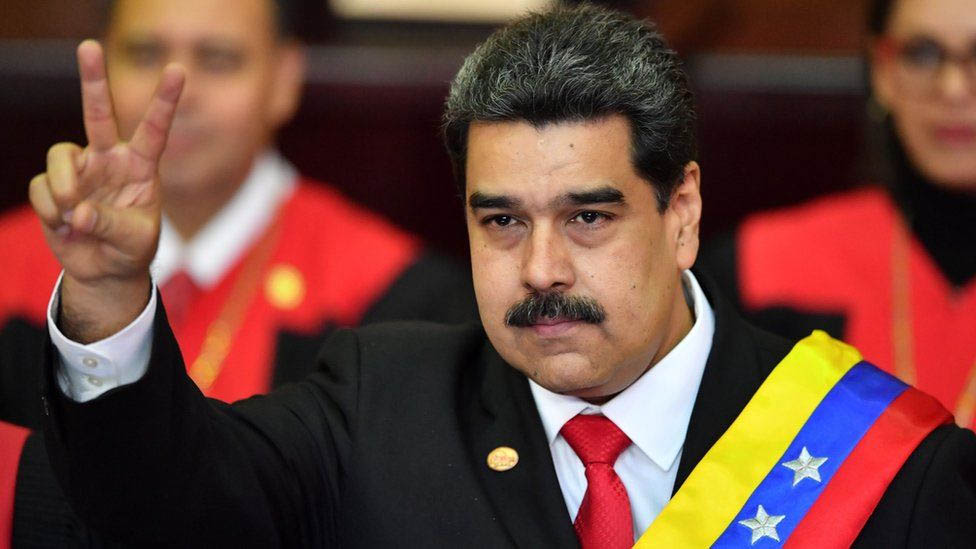WASHINGTON, (Reuters) – The Biden administration said today it was imposing sanctions on 16 allies of Venezuelan President Nicolas Maduro in response to “widespread voter fraud” in the country’s election and his government’s ensuing crackdown on the political opposition.
The move came just days after Edmundo Gonzalez, recognized by the U.S. and other countries as winner of the July 28 presidential election, fled to Spain after Maduro’s government issued a warrant for the opposition leader’s arrest.
Among those targeted for sanctions were Supreme Court President Caryslia Rodriguez, electoral council director Rosalba Gil and National Assembly Vice President Pedro Infante. The list includes others linked to the election as well as military and intelligence officials alleged to have led a campaign of post-election repression.
As part of the first punitive U.S. measures in response to Maduro’s disputed reelection claim, Secretary of State Antony Blinken said Washington was also imposing visa restrictions on an unspecified number of “Maduro-aligned” officials.
But the U.S. stopped short of announcing any new actions against the OPEC member’s vital energy sector, which is already under heavy U.S. sanctions, an omission that raises questions about the likely impact of the new measures.
President Joe Biden’s administration is seeking to punish Maduro and his loyalists for what the U.S. sees as reneging on the promise of a fair democratic vote while also pressuring him into negotiations with the opposition to resolve the crisis.
“The United States is taking decisive action against Maduro and his representatives for their repression of the Venezuelan people and denial of their citizens’ rights to a free and fair election,” Deputy Treasury Secretary Wally Adeyemo said in a statement.
“The Treasury Department is targeting key officials involved in Maduro’s fraudulent and illegitimate claims of victory and his brutal crackdown on free expression following the election, as the overwhelming majority of Venezuelans call for change.”
The Venezuelan government did not immediately respond to a request for comment.
Election officials and Venezuela’s top court have said Maduro, a Socialist who has been in power since 2013, won the election. The opposition said tallies collected by its observers show a resounding victory for Gonzalez.
Many democratic countries have condemned Maduro for claiming victory without providing proof, demanded full transparency, and accused him of tampering with the vote count.
Gonzalez, a 75-year-old veteran diplomat, flew to Spain seeking political asylum last weekend after Venezuelan authorities threatened to arrest him, accusing him of conspiracy and other crimes, charges that he denied.
Venezuelans’ hopes for political change have largely faded with Gonzalez’s flight, the post-election crackdown and the international community’s apparent failure to take decisive action to loosen Maduro’s grip on power.
Washington’s cautious response, some U.S. officials have said, has reflected misgivings about actions that could spike global oil prices or inflict serious damage to Venezuela’s already struggling economy, fearing that could spur an increased flow of Venezuelan migrants to the U.S.-Mexico border.
Aides to Biden and Vice President Kamala Harris, who has replaced him at the top of the Democratic ticket for the Nov. 5 U.S. election, are wary about giving Republicans a further opening on the hot-button immigration issue.
There are questions about how effective additional individual sanctions can be, given that Washington has already hit scores of Venezuelan officials, including Maduro himself, with such measures in recent years.










